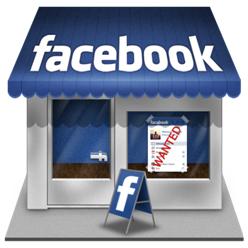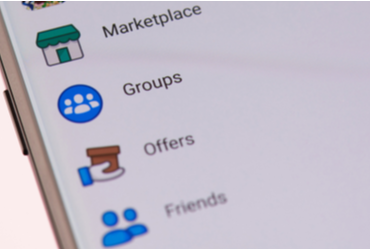Advertising is an integral part of business strategy and can be seen as the facilitator between business produce and the consumer. Commercial promotion can appear in many forms – from a sign in a shop, a few column inches, or a 30-second radio slot, but recently it has become more prevalent online. More and more businesses have created an online presence in an attempt to gain increased sales, customer retention and productivity. The functions of an online web presence may include the promotion of the company, support or advice, contact forms, and the selling of products and services through e-commerce.
The online presence of businesses has increased dramatically over the past few years and it has become the norm for many shoppers to browse for and purchase goods online through e-commerce sites. E-commerce is a platform for buying and selling goods online which incorporates the processes of developing, marketing, selling, delivering, servicing, and transacting. Electronic trade has grown synonymously with the widespread growth of the internet and is evidently slowly merging with social media, notably Facebook.
This amalgamation of e-commerce and Facebook has occasioned the term ‘f-commerce’ – and you may ask what is the need to migrate from e-commerce to f-commerce? Here are some reasons why you should use Facebook for your business and get on the f-commerce bandwagon.
- Your customers are on Facebook. There are more than 500 million active users worldwide, that’s about 1 in every 14 of the living population. These users collectively spend over 700 billion minutes per month on Facebook. It is estimated that worldwide (across all social media), $4.3 billion will be spent on social networks1. Facebook accounts for 1 in every 6 page views in the UK – twice that of Google!2 In relation to Facebook users in the UK, digital media correspondent for the Financial Times, Tim Bradshaw stated on Twitter that Joanna Shields (Vice-President of Sales and Business Development EMEA at Facebook) had revealed that the popular social network now had 30 million UK users. To put this in perspective, this equates to almost half the UK population.
- It is inevitable that these users will begin to spend more time on business pages. At the moment, 50% of the 500 million active users log on to Facebook every day to take part in various social networking activities. With the increased amount of businesses making use of Facebook, it is likely that users will begin to spend an increased proportion of their time on business pages.
- The average Facebook user has 130 friends, and Facebook has become a virtual environment where diurnal activities can take place such as talking to these friends, playing games, sharing photographs etc. These online activities have not only become habitual, but a convenience. Therefore placing your business at the convenience of prospective consumers is surely not a bad idea?
- More than 2.5 million websites have already integrated with Facebook and Facebook users collectively install 20 million applications every day. As Facebook continues to evolve into a powerful platform that can span different functions for users and businesses, the opportunities are seemingly infinite.
- Facebook is a pre-existing platform for business expansion – the podium is already there, why not step on it!

Examples of industries that have already adopted the f-commerce strategy range from travel and ticketing services, to fashion and luxury goods. In January of this year, the online fashion retailer ASOS launched their ASOS Facebook store. At a glance the ASOS Facebook page currently has 640,875 followers, representing a huge number of actively engaged advocates and potential customers. But you may ask why you would use the Facebook store as opposed to the actual online store? The customer experience is likely to be one determining factor in determining the choice of platform. Using f-commerce, customers are able to shop within their social spheres allowing them to seek instant advice from their friends about potential purchases whilst on the same social media platform. Users can essentially have shopping companions that are with them through the whole process of shopping online, thus creating a more satisfying and communal experience.
So, we have established that f-commerce is designed to enable consumers to utilise their social intelligence in order to enrich their shopping experience. In light of this, critics have predicted that transactions completed through Facebook will supersede those made on Amazon within the next five years. Despite the hype, there is more speculation – will the rise of f-commerce merely act as a contributor to e-commerce profits, or will it eventually take over e-commerce completely? There is even the question whether it will take off at all? ASOS have seen sales increase year upon year and are aiming for a £1 billion turnover by 2015 – and as an online only store, the question to consider is whether these profits will be gained through the e-commerce or f-commerce platform? We will see!
An interesting video containing various demographic, statistics and effects relating to social media:
Social Media Revolution 2 (Refresh) from Erik Qualman on Vimeo.


